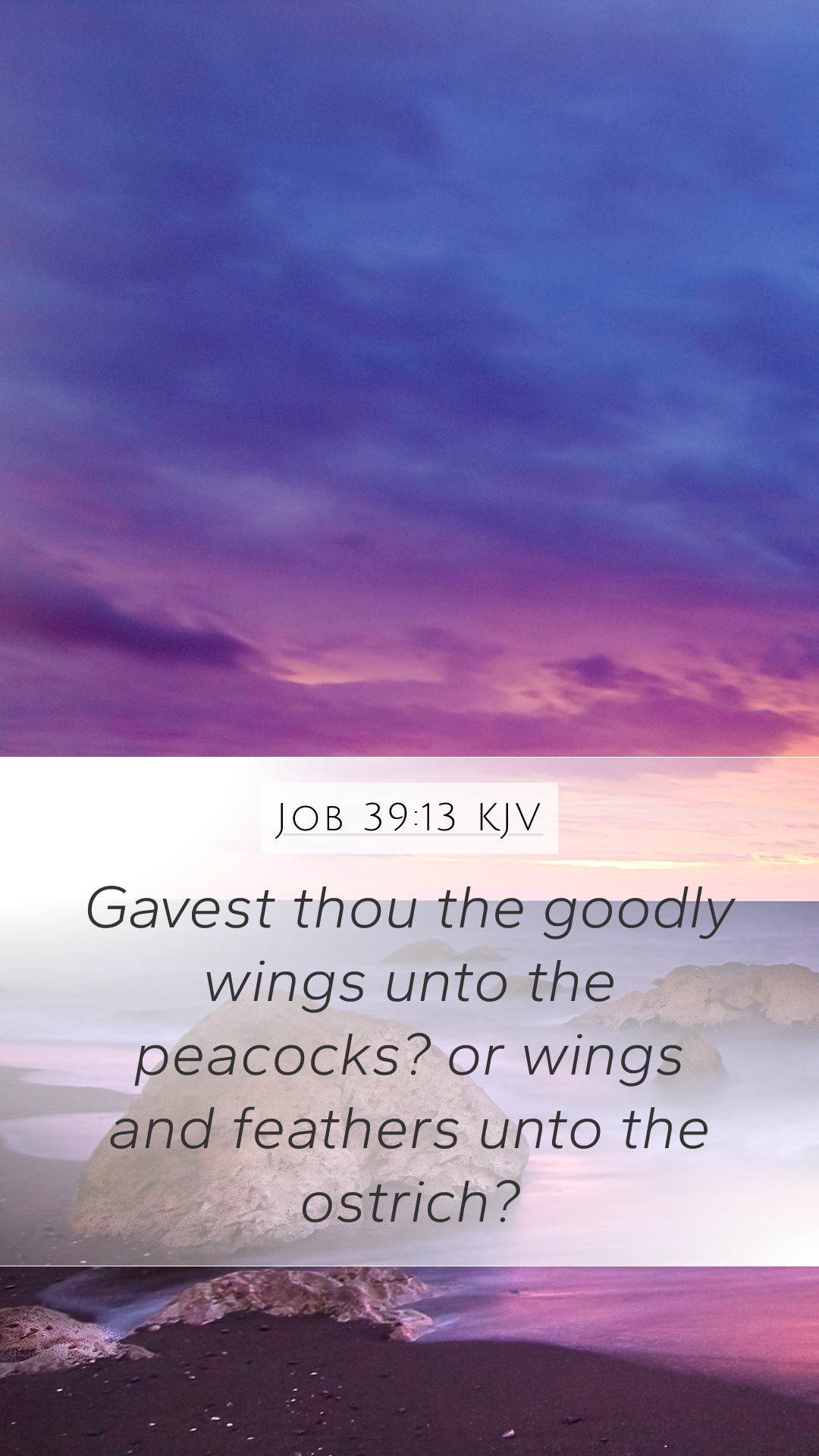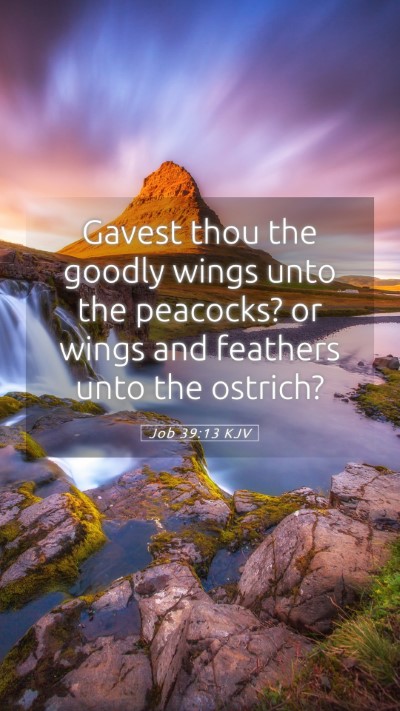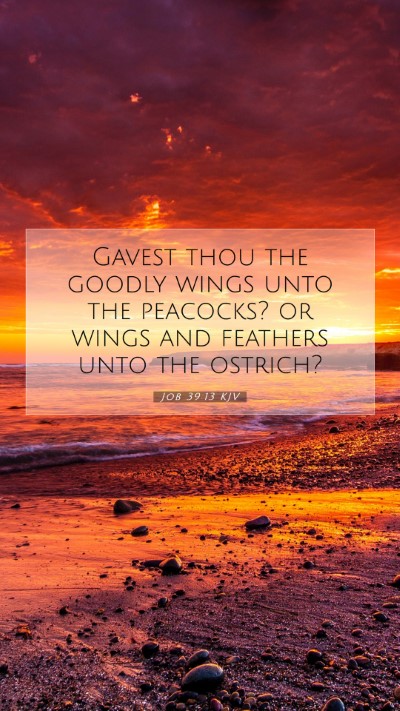Old Testament
Genesis Exodus Leviticus Numbers Deuteronomy Joshua Judges Ruth 1 Samuel 2 Samuel 1 Kings 2 Kings 1 Chronicles 2 Chronicles Ezra Nehemiah Esther Job Psalms Proverbs Ecclesiastes Song of Solomon Isaiah Jeremiah Lamentations Ezekiel Daniel Hosea Joel Amos Obadiah Jonah Micah Nahum Habakkuk Zephaniah Haggai Zechariah MalachiJob 39:13 Meaning
What is the meaning of Job 39:13?
Gavest thou the goodly wings unto the peacocks? or wings and feathers unto the ostrich?
Job 39:13 Bible Verse Meaning
Bible Verse: Job 39:13
"Givest thou the goodly wings unto the peacocks? or wings and feathers unto the ostrich?"
Understanding Job 39:13
In Job 39:13, God poses a rhetorical question regarding His creative power, specifically focusing on birds - the peacock and the ostrich. The verse emphasizes God's sovereignty, creativity, and wisdom in the natural world, highlighting specific characteristics of these creatures.
Bible Verse Meanings and Interpretations
This verse invites readers to explore several theological themes:
- Divine Creativity: The mention of peacocks and ostriches accentuates the uniqueness of each creature, pointing to God as the ultimate Creator who designs them with distinct features.
- The Nature of God: This verse highlights God’s authority over all living things, reinforcing the idea that He is the source of beauty and strength in creation.
- Rhetorical Questioning: The use of questions is a literary device that challenges Job (and the reader) to reflect on the grandeur of God’s creations and His omnipotence.
Commentary Insights from Public Domain Sources
Various commentaries provide deeper insights into the meaning of Job 39:13:
- Matthew Henry: Henry elaborates on how the beauty of the peacock symbolizes both God's artistry and the fleeting nature of worldly beauty. He underscores that while the ostrich is seemingly less admirable, it possesses unique qualities that reflect God's wisdom in creation.
- Albert Barnes: Barnes discusses the literal context and the contrasting attributes of the peacock and the ostrich, emphasizing the notion that God gives diverse characteristics to different creatures, each suited for their environment. This diversity is a testament to the wisdom of God in creation.
- Adam Clarke: Clarke reflects on the functionality of these birds’ characteristics, noting that the winged beauty of the peacock serves a purpose beyond aesthetics, while the ostrich’s wings, though not used for flight, are significant for its survival and behavior, revealing different aspects of God's creative intent.
Application of Job 39:13 in Daily Life
This verse encourages believers to appreciate the intricacies of God's creation, fostering a sense of awe and respect for the natural world. Here are some practical applications:
- Encouragement for Humility: Understanding the limitations of human power compared to God’s creative capability encourages humility and gratitude in our lives. It serves as a reminder of our place within creation.
- Appreciation of Nature: This verse fosters a deeper appreciation for biodiversity. Observing different creatures can lead to reflection on God’s artistry and the complexities of life.
- Faith in Divine Wisdom: In times of struggle, this verse reinforces the principle that God's wisdom surpasses human understanding, prompting hope and trust in His sovereignty.
Related Bible References
Job 39:13 is related to several other passages that echo the themes of God's creation and providence:
- Psalm 104:24-25: This passage praises God for His wisdom in creation and the multitude of creatures He has made.
- Matthew 6:26: Jesus refers to birds in this verse, illustrating God's provision and care for all living beings.
- Isaiah 40:26: This verse invites us to lift our eyes and see the Creator, emphasizing His power and majesty in creation.
Conclusion
Job 39:13 offers profound insights into God's role as Creator, fostering a deeper understanding of His nature and the diversity of life. It challenges readers to reflect on the significance of the natural world and to affirm their faith in His wisdom and power. Engaging with this verse can enhance Bible study groups and individual studies, serving as a tool for deeper understanding and appreciation of Scripture.


